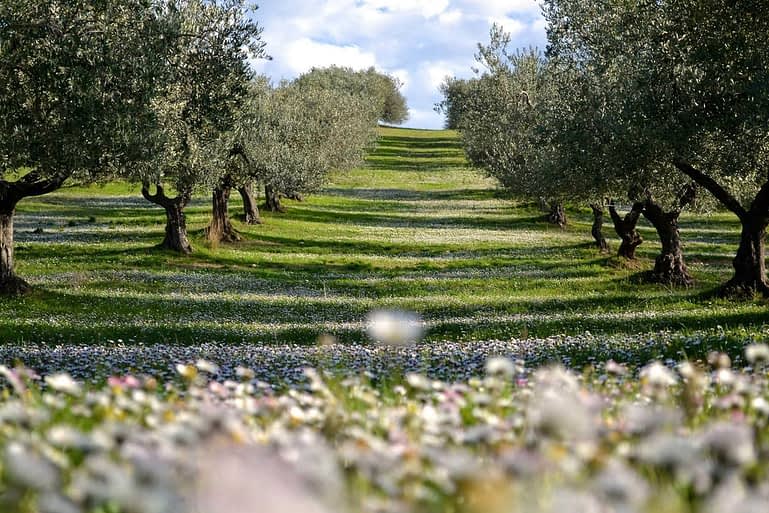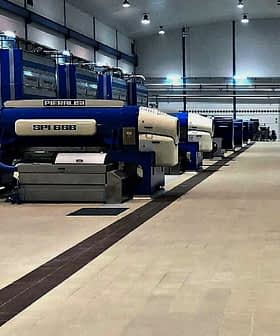
The unusual olive oil competition, Extrascape, will begin its third edition April 27. The event was born to award the best extra virgin olive oils from quality olive growing landscapes, thanks to two different juries made of experts in the two fields – professional tasters and landscape architects. Extrascape is organized by an association of virtuous craft producers, of a small Italian region MolisExtra, together with local authorities (the Municipality of San Martino in Pensilis, with the Patronage of the President of the Molise Region and of the Department of Agriculture and Forestry of Molise Region) and the Research Landscape Unit of the Department of Architecture and Design of University “La Sapienza” of Rome lead by professor Achille M. Ippolito.
As other similar events, Extrascape also aims to spread olive oil culture, thanks to a rich program of conferences and speakers. This year, Tom Mueller will present his book Extravirginity, which has been recently published in Italian, while Ippolito will speak about the promotion of the olive-growing landscape in Molise as a cultural and economic asset. Also the State Forestry Corps gave its patronage to the initiative.
The students of the “Landscape Management and Safeguard” Joint PhD course between three Universities (Sapienza, Tuscia and Unimol) will present their research on the local olive landscape, and the publishing of the records of the past editions will be presented.
But this year, the focus of the event will be the quest for the truth in olive oil, to quote Mueller’s website. Everyone will be able (simply registering through the extrascape.org website) to join the debate that will be introduced by Alberto Grimelli, editor at Teatro Naturale website, and will also feature Rosy Patrone and Amedeo De Franceschi representing the Food and Safety Unit of the State Forestry Corps. The aim is to drive producers, traders, tasters and consumers to express their opinions and necessities about extra virgin olive oil.
“I think that saying that Extrascape is only a competition is quite reducing” says Francesco Travaglini, the MolisExtra president and founder of the initiative. “We have a specific task, that is to give back extra virgin olive oil to its producers, which are the landscape’s guardians and paladins. In my opinion, the pivotal point of this year’s edition will be the “Unconference” that we are going to hold on the 28th. We called it E.V.O. VERO unconventional conference, that means a different way to find and reveal the truth in olive oil. There is a new and promising way to fulfill the social and safeguard demands of the “real” extra virgin olive oil all over the World”.
Travaglini’s words explicitly refer to the infamous New York Times’ infographic about olive oil fraud, “Extra Virgin Suicide,” that some months ago gave an inaccurate and misleading summary of the data contained in Mueller’s book. That’s why, in order to reply to the New York Times’ accusations and to re-establish the truth regarding olive oil, Extrascape also commissioned and published the infographic “Extra Virgin Resurrection” using a similar layout and design, the new slides made by the local agency KComunicazione offer a much more realistic scenery of extra virgin olive oil production and trading in Italy, including the dangers of fraud and adulteration.
But this is only a part of the process, and does not reward the hard job made by honest olive growers and oil producers as well as from the Italian government in an attempt to defend high quality products and the landscape. According to the Italian Constitution (art. 9) “the Republic promotes the development of culture and of scientific and technical research. It safeguards the landscape and the historic and artistic heritage of the Nation.” It is true that many bottles labelled as “Italian Extra Virgin” are not, and it is crucial to be able to detect them, as well as to recognize the value and excellency of the good ones. That’s why it is very important to guarantee and stress the complete traceability of the oil — the only way to be sure of where it comes from.
Producers from all over the world were invited to join the competition – and the Unconference, if they wish so – to prove that their oils, and the landscapes they come from, are real and good.








